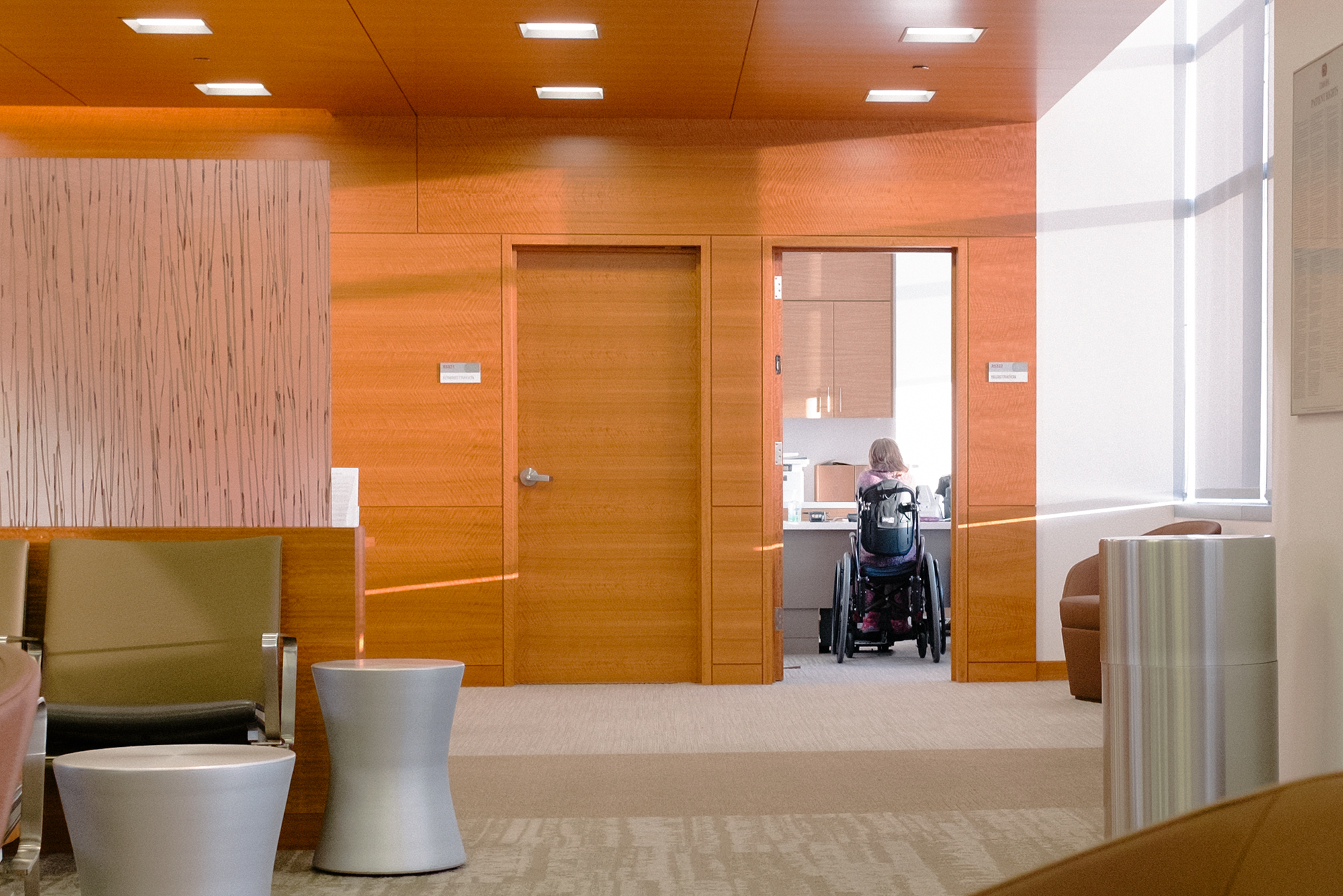
Power
She didn’t bother to look up from her iPad when the doctor entered. He greeted her first. She acknowledged the greeting with a distracted “hey.” Five minutes later Jeanette and I needled Jordan to be present.
“Did you hear that, Jordan?” we’d say.
She intoned a “yeah” but seemed otherwise distracted. But she really wasn’t. I knew deep down that she was listening to every word. This was a defense mechanism. This was a clever way Jordan had devised to manage her health on her terms. Sometimes I worry that this detached and stoic front-face masks a scared and anxious child underneath. That child was forced to grow up quickly. That child believes that mom and dad want her to be strong; that the world wants her to treat her illness as a mere inconvenience when her natural instincts tug at her fears and insecurities.
We have been counseling Jordan to take more ownership of her health. In the months leading up to her 18th birthday last August, we reminded Jordan that she would soon be an adult in the eyes of the law. Because of that milestone, we wanted her to listen to doctors, to ask them questions, to direct them with her intentions. This campaign may seem noble on our part, but it was actually a harsh reality. For over a decade we have been the decision-makers. Jordan was a vested consultant, but the decisions were ours to make. After August 20th, the tables reversed. She had the power to call the shots. We could be cut out entirely, if she desired.
—
We are congregated in the office of Jordan’s therapist Robyn. Jeanette and I asked for the family meeting. Jordan adores Robyn. Robyn’s office has been a safe place for years—a place Jordan associates with fun and friendship. In fact, we refer to Robyn as Jordan’s “friend” not her “therapist.”
Family meetings are rare. Jeanette and I strive to make this time Jordan’s alone. This is for her to discuss whatever she wants, without an agenda. This is time for her to express what she feels down deep inside, without fear that Mom or Dad are listening.
This designation is somewhat arbitrary. Jordan has no secrets and I doubt that she would ever care if Robyn were to share their conversations with us. But we’ve always believed that this relationship is sacred and we take many pains to preserve it, respect it, cherish it. We don’t even ask Jordan what they discuss.
We requested the family meeting because Jordan needed to have surgery again and a cold fact stood before us: we (her parents) could not sign the consent forms. Jordan had to. We weren’t even entitled to a consultation with the physicians. The 18th year divide created such a shift in circumstance that the insurance company refused to discuss the case with us at all. Jordan is an adult. This life is now fully hers to drive.
Of course, Jordan is all too willing to have us take the wheel. But the process is tricky. For example, while trying to clear hurdles on the insurance front, Jeanette was instructed by the phone representative to put Jordan on the line in order to authorize the transfer of information. She did. The agent asked Jordan some identifying questions. When it came to her birthdate she bungled the year. She often confuses the last two digits, dyslexically flipping them. The agent asked her to clarify and Jeanette coached Jordan. At that point, the agent said, “ma’am, I can hear you in the background. I now have to terminate this call because we cannot release information when the patient might not be giving free consent.”
Jeanette went apoplectic. I did my best to calm her down and figure out a work-around. I’d had consent forms sitting in my inbox for months. My attorney provided them. One was consent for caregivers to release information about Jordan to us. The other was a power of attorney. I hated the idea of pulling this trigger. It was absolutely necessary, of course. Yet there was a part of me that hated the idea of asking Jordan to sign them. I want her to be independent. I wanted her to live a true adult life.
These papers don’t really take that away, but to me they admitted a kind of defeat. My conscience was heavy. Did Jordan know what she was signing? Was this what she wanted? How much influence were we exerting, even if we didn’t realize it?
As a stop gap, I had Jordan sign the information release form, but I did not want her to sign power of attorney without the family meeting with Robyn.
Back in the moment in Robyn’s office, Jordan is measured. After some fun initial small-talk, her tone shifted to that of the detached warrior in any other doctor’s office. She didn’t have an electronic device this time, but she had retreated to one word answers.
Robyn drew her out for a while. She had us all talk about the current situation. She asked Jeanette and I to explain what we thought needed to be done and then asked Jordan what she thought about it. We reminded Jordan of the time when she was in a coma. We told her about all the things that happened while she was away from us, like the time she had a seizure that lasted so long that she started having trouble breathing. The doctors asked us if we wanted them to help her breathe if it happened again. Or if we should let nature take over. Of course, we told them to help her breathe. We explained to Jordan that if that happened again, we would not have a say.
After a while, Robyn gave Jordan the option for Jeanette and I to leave the room so that Jordan and Robyn could discuss the matter privately. But Jordan didn’t think it was necessary. At that point, Robyn turned to us and said, “honestly, I think you may be over-thinking this.”
I looked up a little startled.
“Jordan trusts you very much,” she said. “We’ve talked about this a lot in the past. She knows that you fight for her and keep her safe. Don’t you, Jordan?”
Jordan nodded yes. Robyn told us about the many conversations they had in the past, in which Jordan confided to Robyn that she was very proud of us for always taking good care of her. How she felt safe. How she was grateful to have us as parents.
Now, it was my turn to be detached. I felt the urge to cry. I thought back to all the days in the past when I wished that someone else had the responsibility for making decisions to go forward with surgery or start an onerous chemotherapy protocol. I remembered the day that I kissed Jordan on the forehead before she was wheeled into spinal surgery. The risk in that surgery was palpable. There was a 50% chance she’d come back paralyzed from the waist down. The pit of my stomach ached with anxiety. Was I making the right decision? What regret would I feel if it didn’t go well and robbed Jordan of her quality of life? When those doors to the O.R. closed and she was out of sight I cracked. I think the technical term is that I lost my shit. I threw my arms around Jeanette and bawled, sobs escaping before I could catch my breath. That decision was the hardest one I’ve ever made in my life.
We ended our family meeting with Robyn with a strong sense of agreement: that Jordan would sign the documents that let her mom and dad make decisions for her with the doctors when needed.
That following weekend we visited a notary public. Jordan signed power of attorney to us in all matters related to her health. I can’t say that the moment gave me any comfort. While I was relieved that we could continue to represent Jordan’s best interests, I grieved that my daughter had to relinquish any part of her free will. She did so, however, with confidence and certitude.
Thursday, she had surgery on her left foot. But we did not need the power of attorney. Jordan wheeled herself into the check-in office on her own. She answered the nurse’s questions dutifully and signed the consent forms independently. She paid attention when the doctor arrived, and she made her opinions known when the anesthesia wore off and it was time to determine whether or not she was ready to go home. Her recovery has been remarkable. Her spirit and her resolve humble me and make me realize that Robyn was absolutely right. We were over-thinking it. From the very beginning, Jordan has always guided us. She only provided the illusion that the decisions were ours.
